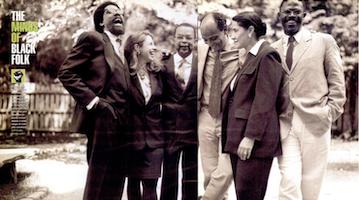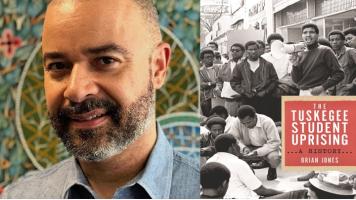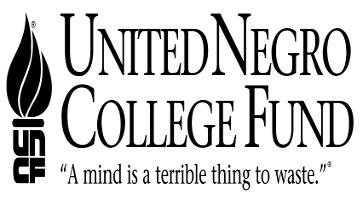Mississippi’s ability to sabotage Black public higher education is enhanced by the state’s power to choose compliant Negroes as administrators.
“State college boards across the country continue to play musical chairs with HBCU presidents.”
Dr. John A. Peoples was the last great President of “Thee I Love.” That’s ironic for me to say because I’ve never liked the phrase “Thee I Love” and always preferred the older motto of “A Commitment to Academic Excellence.” Be that as it may, since the removal of Peoples, the Jackson State Presidency has been filled with a steady flow of good, to subpar, to downright horrific presidents all chosen exclusively by the Mississippi State College Board better known as Institutions of Higher Learning (IHL). Thus, in this moment of Dr. William Bynum having to resign as JSU President after being charged with procuring the services of a prostitute, one wonders if this could have been avoided if IHL would have, for once, listened to the JSU family of students, staff, faculty, administrators, and alumni who unanimously did not want Bynum as their president? Bynum had already been given a vote of no confidence by the JSU Faculty Senate so it isn’t as if he was an outstanding leader before this moment. To be clear, a vote of no confidence does not mean that one is an inept leader, but it does signify that there is a gap between where one is and the excellence one is striving to achieve. One would think that after not listening to the JSU family’s recommendation not to hire former JSU President Carolyn Meyers that IHL would have taken their advice regarding Bynum since Meyers did such a horrendous job, culminating in the loss of $25 million. But, IHL remained tone-deaf to the advice of the JSU family and now finds itself conducting another search for a JSU President.
“IHL remained tone-deaf to the advice of the JSU family.”
Not once since Peoples has JSU been allowed to have any meaningful or substantive impact in choosing its own president. As such, since Peoples, IHL’s record of choosing presidents for JSU is 1 and 3 (not counting the number of interim and acting presidents) with Dr. James A. Hefner being the lone president who was, at least, good, and some debate that point. Still, since Hefner, the people serving as JSU President have been more aligned to the will of IHL and not to that of JSU. Of course, the question to that statement is: But, isn’t IHL concerned with ensuring that all of its academic institutions do well? Anyone who asks that question does not know the history of IHL as it relates to its HBCUs. Since the 1920s, there has been a desire by many to have the University of Mississippi in Jackson as Alabama and Mississippi are the only two states that do not have a public Predominately White Institution (PWI) in their state Capital. As early as 1927 then-Governor Theodore G. Bilbo presented a plan to the State legislature to move the University of Mississippi from Oxford to Jackson. Since then, the primary plan to have a PWI in the Capital has been finding a way to convert JSU into the UM at Jackson.
“Since the 1920s, there has been a desire by many to have the University of Mississippi in Jackson.”
It seems that every president after Hefner has given IHL increasingly more reason to do that. The best example is the hiring of Attorney Ron Mason over Dr. Bettye Ward Fletcher who was, by all accounts, the most qualified person for the JSU Presidency at the time. Moreover, unlike Mason and every other president IHL has chosen for JSU, including Bynum, every component of JSU wanted Fletcher to be president: the students, faculty, staff, administration, and alumni. And, Lord knows how difficult it is to have all five of these entities to agree on anything. But, Fletcher was viewed by IHL as having loyalties that would prohibit her from doing their bidding. Fletcher was a Tougaloo College graduate, had worked at JSU for twenty years, and, unlike most Negroes who earn a little bit of money, never left her black neighborhood. Thus, she was viewed as one who would always work for the best of JSU and not merely to please IHL. That is why Mason was chosen over Fletcher. This has been the history of the JSU Presidency since Peoples was fired for circumventing certain IHL policies to ensure that JSU became a place that breeds scholars who are capable of competing anywhere and with anyone. Thus, as bad as Bynum’s actions are, history informs that other presidents handpicked by IHL have done equal damage to embarrass and destroy the university. By reviewing the actions of other presidents, remembering the accomplishments of Peoples, and understanding the game of musical chairs that state college boards have always played with HBCU presidents, one realizes that, if JSU can survive all of that, it will find a way to survive this current ordeal and thrive as always.
“As bad as Bynum’s actions are, history informs that other presidents handpicked by IHL have done equal damage to embarrass and destroy the university.”
Sadly, if not ironically, Mason’s issue wasn’t that he was intellectually inept. Some of his JSU accomplishments include increasing the number of graduates by thirty percent, increasing student retention by thirteen percent, and doubling the external funding from $30 million to $60 million. But, his Achilles heel is that he suffers from a perversion of W. E. B. Du Bois’ Talented Tenth notion. Most people have no idea what Du Bois actually wrote in “The Talented Tenth” because most people only repeat what they have heard and do not read for themselves. According to Du Bois, the ten percent of the race that had accomplished some sort of achievement has a responsibility to help the other members of the race. This “pulling of others” must be perpetuated until all black people have been helped to sovereignty. Unfortunately, most people think that Du Bois asserted that only ten percent of the race has the ability to lead the other ninety percent. But, again, the only people who think that are buffoons who don’t read or black people who are so self-hating that they think that the vast majority of African Americans are incapable of leadership. Yet, Du Bois asserts that “The Talented Tenth rises and pulls all that are worth the saving up to their vantage ground. This is the history of human progress; and the two historic mistakes which have hindered that progress were the thinking first that no more could ever rise save the few already risen; or second, that it would better the unrisen to pull the risen down.”
“Mason suffers from a perversion of W. E. B. Du Bois’ Talented Tenth notion.”
Du Bois is asserting an act of constant pulling and that more than a few assigned or designated must be pulled upward. I can’t say to what extent Mason devalued African-American intellect, but many of his moves and policies indicate that he believed that only a few African Americans from certain backgrounds were capable of leadership. However, the irony is that I once heard him say that “None of this matters because white folks are going to do what they want to do.” Mason uttered these words as a group of us from Jackson State was leaving the newly built downtown Convention Center after having been there most of the day for IHL presenting its plan to use the four-year universities to help high schools better prepare students for college. He didn’t make this statement directly to me or anyone in particular but more as a sigh from having been required to attend something that he knew would amount to much of nothing. While I didn’t respond, I recognized the complexity of a black man who understood white supremacy yet could not overcome his own need to be a special Negro. Manson’s desire for “special Negro” status culminated when he proposed a new HBCU, Jacobs State University, which would eliminate two of the four-year HBCUs by combining JSU, Alcorn State University, and Mississippi Valley State University into one institution, doing the dirty work for IHL.
“I recognized the complexity of a black man who understood white supremacy yet could not overcome his own need to be a special Negro.”
This ability to harm and/or marginalize other black folks to be deemed as a special Negro by white folks seems to be the problem with most of the people chosen by IHL to lead JSU. This was also true of former JSU President James Lyons who probably dealt the institution its biggest blow during the Ayers Case when he testified for the state against JSU, contradicting the recommendation of the US Supreme Court by stating that JSU would not be able to administer a medical school and a law school, which had been recommended by the US Supreme Court as part of the Ayers Settlement. Lyons went even further to add that he felt that there were already enough lawyers and that Jackson State didn’t need to be in the business of producing more—so much for HBCUs being institutions to produce the necessary scholars and leaders to meet the critical need of the community. Yet, coming full circle, President Hefner who succeeded President Peoples is the best example of what happens when a HBCU president works for the university against the wishes of IHL. When first chosen as President, Hefner was more than willing to do IHL’s bidding. However, as he began to realize that IHL, especially IHL Commissioner Ray Clear, regarded him with the same lack of respect as any other African American, Hefner began to work more closely with the JSU staff, faculty, administration, and alumni. In a move that mirrored the work and philosophy of Peoples, Hefner had saved enough money to provide a raise for JSU staff and faculty even though the Mississippi legislature had not authorized raises for any of the state’s colleges or universities. When Hefner decided to implement the raises despite the legislature having failed to pass the initiative, Clear blocked the raises and began the process to remove Hefner as JSU President. I guess this is what happens when uppity Negros decide to become sovereign. So when people state that IHL has a history of installing leadership at HBCUs that work to the demise of the institutions, that is based on fact not conjecture. Still, what cannot be denied is that even under the poor presidents chosen by IHL, JSU has continued to produce great young minds in a multitude of fields because, try as it might, IHL has been unable to destroy completely the foundation created by Peoples and those who worked before and with him to cultivate JSU as a rich soil for intellectual harvest.
“This is what happens when uppity Negros decide to become sovereign.”
To be clear, Peoples is no saint. Many criticize him for not doing more to support the development of the JSU Margaret Walker Alexander Center and for his handling of Civil Rights activists Dorie and Joyce Ladner as well as his interaction with Attorney Constance Slaughter-Harvey as she was representing the JSU students after the 1970 shooting when the Jackson Police Department, the Mississippi Highway Patrol, and the Mississippi National Guard stormed the campus and fired over 400 rounds into Alexander Hall, a female dorm, killing two and wounding eighteen. So, Peoples was anything but perfect. However, despite his missteps, unlike most who followed him, no one ever questioned his love for the university, which was manifest in his accomplishments of expanding Jackson State College into Jackson State University while never receiving any additional monies from IHL for his plans or programs. Rather than kowtow to IHL, he often went behind their back to identify other sources of funding for JSU. When I was a JSU student, McAlister-Whiteside Dorm was known as New HUD because Peoples was able to obtain funding for the dorm through other sources rather than IHL. Also, Peoples refused to use the ACT as the sole requirement to determine admission into JSU even though he was mandated by IHL to do so. Further, when IHL refused to provide Peoples with additional funding for professors to teach in the new programs that he had developed without any money from them, he, again, found another revenue source by partnering with a local convent to hire nuns with PhDs to teach the classes, allowing those new programs to receive accreditation.
“No one ever questioned Peoples’ love for the university.”
Unfortunately, JSU has not had a president of this manner since Peoples. In fact, eighty percent of what is known as JSU was developed under Peoples, including the School of Liberal Studies, the School of Education, the School of Science and Technology, the School of Business and Economics, the Graduate School, the number of faculty tripled, and the number of terminal degree offerings increased more than eightfold from 1967 – 1977. Additionally, eleven new buildings were erected under Peoples, including the Physical Education Building, the Industrial Technology Building, two new dorms, the School of Education Building, an addition to the library, the Administration Tower, the Charles F. Moore Building, the F. D. Hall Music Auditorium, a new dining hall, the John A. Peoples Science Building, and the Athletic and Assembly Center. With all of his progressive work, the irony of Peoples’ legacy is that he was handpicked by President Jacob L. Reddix who was considered by most as an accommodationist to the white power structure. Yet, it was Reddix, not IHL, who chose Peoples. Reddix got in his car, left Jackson, Mississippi, and drove to Gary, Indiana, where Peoples was teaching after having graduated from JSC, to ask Peoples to work for him so that Reddix could groom him to be the next President.
I’ve often wondered how a man chosen by a known accommodationist could be the most radical and successful leader Jackson State has ever had. To this day, I don’t have an answer. Still, what cannot be denied is that as long as JSU has been responsible for choosing its own leadership, that leadership has improved the school. Yet, every single time that IHL has ignored the intellect and will of the JSU family (its students, staff, faculty, administration, and alumni), it has chosen a president that either held the institution stagnant or worked to make it worse than what it was before that person arrived.
“I’ve often wondered how a man chosen by a known accommodationist could be the most radical and successful leader Jackson State has ever had.”
This gets us to the last two JSU Presidents: Drs. Meyers and Bynum. I have often written that white supremacy is not the lone hurdle for African Americans. It is the combination of white supremacy and Negro ineptitude that limits the struggle of African Americans to liberate themselves and become fully sovereign peoples. This is most evident in Meyers and Bynum who, again, were not desired by the JSU family to lead the institution. Meyers “mishandled” $25 to $35 million (depending on which number one believes) under the watchful eye of IHL. Since there is no way that she could have mishandled that much money in one year, IHL had to be aware of her mishandling JSU’s finances and did nothing to stop it. So, IHL is responsible for hiring and indulging Meyers’ “ineptitude” who, by the way, had a history of mishandling school finances before being hired to lead JSU. In the case of Bynum, none of us can say that we saw this particular demise coming. Yet, I am at least grateful that there is documented footage of JSU students, staff, faculty, administrators, and alumni all expressing their confusion and outrage of Bynum being appointed as JSU President the day that it was announced. Bynum, for the record, was eliminated from consideration of the JSU Presidency after the first round of interviews. He was not a finalist based on the recommendations of the JSU search committee. Now, as an old sports fan, no one has been able to explain to me how someone can lose in the first round of the tournament and then play in the final four. I’d never seen that happen until Bynum was installed as JSU President after, again, not impressing anyone in the first round of interviews. The question remains: why does IHL continue to give HBCUs presidents that the schools, themselves, find as intellectually and culturally lacking? The only answer I can surmise is that IHL wants to ensure that JSU and the other state-funded HBCUs never receive another John A. Peoples, someone who loves the institution more than one desires to please IHL.
“Bynum was installed as JSU President after not impressing anyone in the first round of interviews.?
It should be noted that state college boards across the country continue to play musical chairs with HBCU presidents. It is not uncommon for a failed or ousted HBCU president to find a job fairly quickly leading another HBCU, doing the bidding of the state college board to impede the growth and progress of the institution. Former Alcorn President Dr. M. Christopher Brown II was hired as the President of Kentucky State University even after his poor work at Alcorn. Former JSU President Lyons was rewarded with the Presidency of California State University Dominguez Hills, which is a Hispanic serving university, after testifying against JSU during the Ayers Case. And, former JSU President Ron Mason was hired as the President of Southern University at Baton Rouge. This is one of the reasons that many HBCUs decided to remain private rather than become public institutions, to retain control of its leadership and direction. The vast majority of HBCUs began as private institutions. Yet, after the crash of 1929, many HBCUs, including JSU, made the transition from private to public to have a steady flow of funding rather than working to secure private monies as their sole source of funding. The result of those who remained private and those who became public is about six in one hand and half a dozen in the other. Some private HBCUs have fared well and some have not. Similarly, some public HBCUs have fared well and some have not. Yet, what is most clear is that the HBCUs that have fared best have been those whose National Alumni understand fundraising as a political activity.
“Many HBCUs decided to remain private rather than become public institutions, to retain control of its leadership and direction.”
Predominantly White Institutions are able to impact and control the presidents they receive because they contribute a large share of their president’s salary. So, it would be rare for Ole Miss, Mississippi State, and the University of Southern Mississippi to be given a president that they didn’t want because they have the ability to withhold their contribution to their president’s salary. Unfortunately, most public HBCUs only contribute about $8.42 toward their president’s salary. I’m sure the amount is more than that, but, whatever the number is, it isn’t enough to give public HBCUs the power or leverage to control who is hired as their president. As such, the resignation of President Bynum should serve as a call and opportunity for me and those of us who claim to love JSU but rarely invest as much money into JSU as we do words. Yes, I pay my annual alumni dues, but that’s not nearly enough to enable JSU to raise the type of funds needed to lessen the control that IHL has over the university. As the JSU family moves forward, putting the resignation of Bynum in our rearview mirror, we must now think more progressively of how we can do more to ensure that we have more control over who leads our institution. The only way to do that is to give as much money as we can, which gives us more access to the rooms of decision making, including curriculum development among other areas.
As members of the listserv know, my wife, Monica, is going to heaven; I’m probably not because I just don’t love y’all like she does. I worship the Yeshua who whipped ass in the temple, and I’ll let y’all have the Messiah who loved everybody. That being said, this is both a time to be analytical as well as to remember that love of self and love of community is what has always enabled “Thee I Love” to remain on its course of academic excellence while overcoming the traps and pitfalls of white supremacy and Negro ineptitude. Yet, Negro ineptitude and white supremacy have never defined us. What has defined us has been our ability to fight for the right to educate people that the state of Mississippi has never fully wanted to educate. And, this is what we will do, regardless of the help or lack thereof from IHL.
C. Liegh McInnis is a poet, short story writer, author of eight books, former editor of Black Magnolias Literary Journal, and an English instructor at Jackson State University. He can be contacted athttp://www.psychedelicliterature.com/.
Bibliography
Ballou, Howard. “Former JSU President Bynum Controversial Choice from the Start.”
WLBT.com. February 10, 2020. https://www.wlbt.com/2020/02/11/former-jsu-president-bynum-controversial-choice-start/. February 11, 2020.
Diverse Staff. “Jackson State University President Carolyn Meyers Resigns.” Diverse
Education.com. October 26, 2016. https://diverseeducation.com/article/88600/. February 11, 2020.
Du Bois, W. E. B. “The Talented Tenth.” Teaching American History.org. https://
teachingamericanhistory.org/library/document/the-talented-tenth/. Accessed February 11, 2020.
“James E. Lyons, Sr., Senior Consultant, AGB Consulting.” AGB.org. https://agb.org/james-e-lyons-
sr/. February 11, 2020.
“KSU Announces Dr. M. Christopher Brown II as Its New President.” KYSU.ed. March 13,
2017. https://kysu.edu/2017/03/13/ksu-announces-dr-m-christopher-brown-as-its-new-president/. February 11, 2020.
Peoples, John A. To Survive and Thrive: The Quest for True University. Town Square Books, 1995.
Schaefer, Ward. “Mason Leaving JSU for Southern Univ.” Jackson Free Press.com. April 30,
2010. https://www.jacksonfreepress.com/news/2010/apr/30/mason-leaving-jsu-for-southern-univ/. February 11, 2020
Wolfe, Anna et al. “JSU President Resigns.” Clarion Ledger.com. October 25, 2016.
https://www.clarionledger.com/story/news/local/2016/10/25/jsu-president-resigns-amid-finance-issues/92743788/. February 11, 2020.
COMMENTS?
Please join the conversation on Black Agenda Report's Facebook page at http://facebook.com/blackagendareport
Or, you can comment by emailing us at comments@blackagendareport.com

















